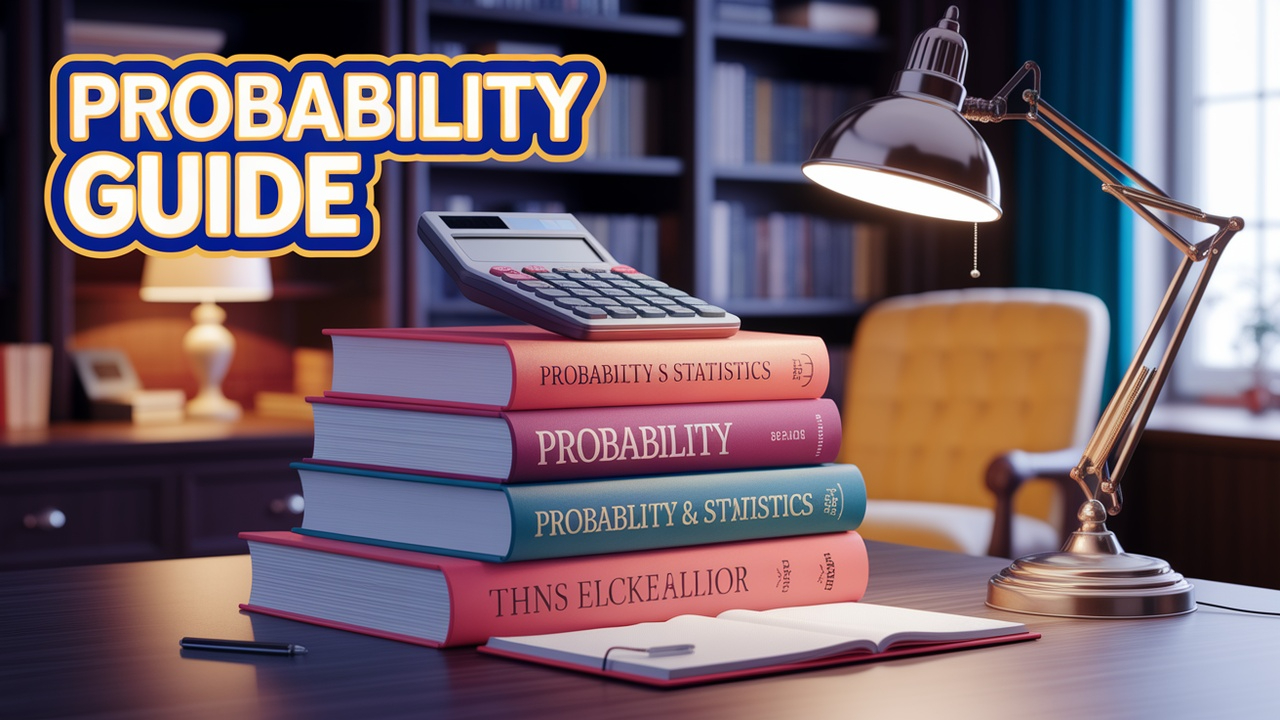
This course provides a comprehensive overview of the fundamental concepts of probability and statistics that are essential for understanding and developing artificial intelligence algorithms. Participants will gain hands-on experience with statistical methods and probability theories, equipping them with the skills necessary to analyze data and make informed decisions in AI applications.
Course Levels
-
Level 1: Introduction to Probability
This level introduces the basic concepts of probability, including definitions, theorems, and applications.
-
Level 2: Random Variables and Distributions
Explore different types of random variables and their probability distributions, which form the foundation for statistical analysis.
-
Level 3: Descriptive Statistics
Learn how to summarize and interpret data effectively using descriptive statistics.
-
Level 4: Inferential Statistics
Delve into inferential statistics to make predictions and inferences about populations based on sample data.
-
Level 5: Regression Analysis
Understand the principles of regression analysis to model relationships between variables.
-
Level 6: Advanced Probability Concepts
Expand your knowledge of probability with advanced topics that are critical for AI algorithms.
-
Level 7: Bayesian Statistics
Explore Bayesian methods and their applications in AI, focusing on how they compare to traditional statistics.
-
Level 8: Statistical Learning
Learn about statistical learning techniques that are fundamental to developing machine learning models.
-
Level 9: Time Series Analysis
Dive into the analysis of time series data, which is crucial for forecasting in AI applications.
-
Level 10: Ethics and Data Interpretation
Discuss the ethical considerations and best practices in data interpretation and statistical analysis for AI.
Course Topics
-
Measures of Variability
# Measures of Variability In statistics, measures of variability (or dispersion) help us understand how spread out or clustered the data points in a dataset are. While measures of central tendency (m...
-
Conditional Probability
# Conditional Probability Conditional probability is a fundamental concept in probability theory that quantifies the likelihood of an event occurring given that another event has already occurred. Un...
-
Data Visualization Techniques
# Data Visualization Techniques Data visualization is a crucial aspect of data analysis, enabling us to interpret and communicate data insights effectively. This topic covers various data visualizati...
-
Model Selection and Regularization
# Model Selection and Regularization Model selection and regularization are two crucial techniques in statistical learning that help in building predictive models that generalize well to unseen data....
-
Exponential Smoothing
# Exponential Smoothing Exponential smoothing is a popular forecasting technique used in time series analysis. It applies decreasing weights to past observations, which means more recent data points ...
-
Random Processes
# Random Processes Random processes, also known as stochastic processes, are collections of random variables indexed by time or space. They are fundamental in fields such as probability theory, stati...
-
Multiple Regression Analysis
# Multiple Regression Analysis Multiple regression analysis is a powerful statistical technique used to understand the relationship between one dependent variable and two or more independent variable...
-
Introduction to Statistical Learning
# Introduction to Statistical Learning ## What is Statistical Learning? Statistical Learning is a framework that encompasses various statistical methods and machine learning techniques used to analyz...
-
Central Limit Theorem
# Central Limit Theorem The Central Limit Theorem (CLT) is one of the most fundamental concepts in statistics and probability, particularly relevant in the field of AI and data science. It describes ...
-
Bias and Fairness in AI
# Bias and Fairness in AI ## Introduction Bias in Artificial Intelligence (AI) refers to systematic errors that result in unfair outcomes, often reflecting societal prejudices. As AI systems are incr...
-
Evaluating Regression Models
# Evaluating Regression Models Evaluating regression models is a crucial step in the modeling process. It helps us determine how well our model performs and how accurately it can predict outcomes. Th...
-
Expected Value and Variance
# Expected Value and Variance In the realm of probability and statistics, **Expected Value** (EV) and **Variance** are fundamental concepts that help us understand the behavior of random variables. T...
-
Interpreting Results Responsibly
# Interpreting Results Responsibly Interpreting results from data analysis is a critical skill in statistics and AI, particularly as we increasingly rely on quantitative data to make decisions. It is...
-
Logistic Regression for Classification
# Logistic Regression for Classification ## Introduction Logistic regression is a statistical method used for binary classification problems. Unlike linear regression, which predicts continuous value...
-
ARIMA Models
# ARIMA Models ARIMA (AutoRegressive Integrated Moving Average) models are a class of statistical models used for analyzing and forecasting time series data. They are particularly useful when the dat...
-
Markov Chain Monte Carlo Methods
# Markov Chain Monte Carlo Methods Markov Chain Monte Carlo (MCMC) methods are a class of algorithms used to sample from probability distributions based on constructing a Markov chain that has the de...
-
Introduction to Linear Regression
# Introduction to Linear Regression Linear Regression is a fundamental statistical technique used to model the relationship between a dependent variable and one or more independent variables. In the ...
-
Bayes' Theorem
# Bayes' Theorem Bayes' Theorem is a foundational concept in probability and statistics, particularly essential for understanding conditional probabilities. Named after the Reverend Thomas Bayes, thi...
-
Types of Errors in Hypothesis Testing
# Types of Errors in Hypothesis Testing In the realm of inferential statistics, hypothesis testing is a critical procedure used to make inferences or draw conclusions about a population based on samp...
-
Applications of Advanced Probability in AI
# Applications of Advanced Probability in AI Advanced probability concepts play a crucial role in the development and functioning of artificial intelligence (AI) systems. This section explores variou...
- And 30 more topics...